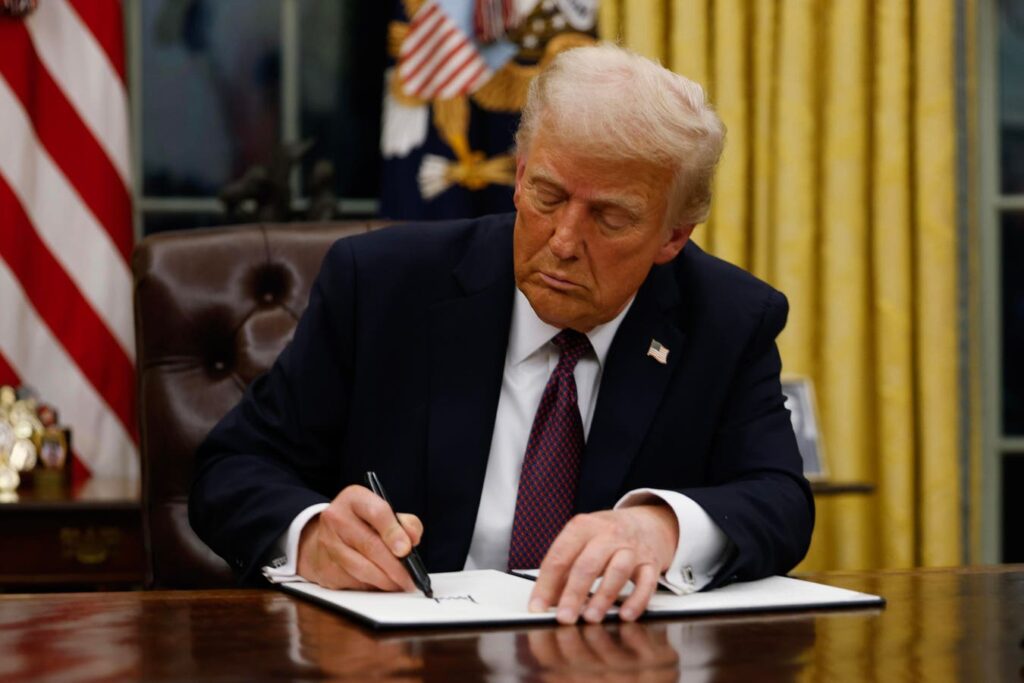With President Donald Trump now back in the oval office once again, whispers within Washington D.C. of a potential repeal of the estate tax have once again surfaced. While Trump had quite the busy first day, including a flurry of executive orders and memorandums, none really touched upon the estate tax. Nevertheless, Trump has long expressed his desire to repeal the estate tax, commonly referred to as the “death tax.” In general, the estate tax, which applies to the transfer of wealth upon death, has been a point of contention in American politics for years, with critics arguing it penalizes wealth creation and hinders economic growth. Supporters, however, maintain that it helps address wealth inequality and generate government revenue. While Trump’s administration made some strides toward reducing estate tax burdens—most notably through the Tax Cuts and Jobs Act of 2017— the estate tax in its entirety remains a difficult challenge, largely due to both political and procedural obstacles, including the Byrd Rule.
What Is the Estate Tax?
In general, the estate tax imposes a levy on the transfer of an estate when an individual passes away. In 2025, the estate tax exemption is set at $13.99 million for individuals and $27.98 million for married couples. This means that only estates exceeding this threshold are subject to tax, with a tax rate of 40%. Critics argue that it affects family businesses and farmers, while proponents assert that it helps limit the accumulation of excessive wealth in the hands of a few individuals.
History of Temporary Repeals
While the estate tax has been a perennial topic of debate, it has been temporarily repealed at different points in U.S. history. Four times in U.S. history the estate tax was repealed in one form or another,[1] with the most notable instance occurred between 2001 and 2009, when the estate tax was fully repealed for the tax year 2010 as part of the Bush-era tax cuts. However, the repeal was short-lived. The estate tax returned from the dead in 2011, with an exemption of $5 million, indexed for inflation. The temporary repeal and its subsequent reinstatement underscored the challenges of achieving long-term tax policy changes.
The Byrd Rule and Its Implications
While Trump and other conservative lawmakers may potentially aim for full repeal, the Byrd Rule presents a significant procedural hurdle. Named after Senator Robert Byrd of West Virginia, this rule restricts the use of budget reconciliation to certain types of legislation in the Senate. Specifically, it allows for the passage of bills related to taxes and spending to pass with a simple majority, but it prohibits provisions that increase the federal deficit outside of the budget window (typically ten years).
In the case of repealing the estate tax, the Byrd Rule could become a major stumbling block. Under current law, eliminating the estate tax would result in a substantial loss of revenue, particularly since the tax applies to the wealthiest individuals in the country. Repealing the tax without offsetting revenue gains would likely violate the Byrd Rule, which could prevent such a proposal from advancing through the Senate via reconciliation.
In 2017, when the Tax Cuts and Jobs Act was passed, it temporarily doubled the estate tax exemption, effectively reducing the tax burden without eliminating it. However, because this change was part of a broader tax reform package, its effect on the deficit was a major concern. The exemption increase is set to expire in 2025 unless Congress acts to extend or make permanent these provisions.
Political Challenges
Beyond the Byrd Rule, political realities also make full repeal of the estate tax difficult. The estate tax repeal has traditionally been supported by Republicans, while Democrats have been steadfast in opposing it. Democrats view the estate tax as an important tool for curbing wealth inequality and ensuring that the wealthiest Americans contribute their fair share of taxes.
In addition, public opinion has generally been divided on the issue, with many Americans believing that the wealthiest individuals should pay taxes on large inheritances. This sentiment could make it harder for lawmakers to rally the necessary votes to repeal the tax. Given the current political climate, where bipartisanship is difficult to achieve, a repeal of the estate tax seems unlikely in the near future, even with the Republicans having current control of both the House and the Senate.
Conclusion
While the estate tax remains a contentious issue, several factors make it unlikely that Trump or future lawmakers will be able to fully repeal it in the foreseeable future. The Byrd Rule’s restrictions on deficit-increasing measures, combined with the political realities of Congress and public sentiment on wealth distribution, will likely continue to prevent a full repeal of the estate tax. Despite temporary repeals in the past, the path to complete abolition remains fraught with procedural and ideological challenges.
Read the full article here

